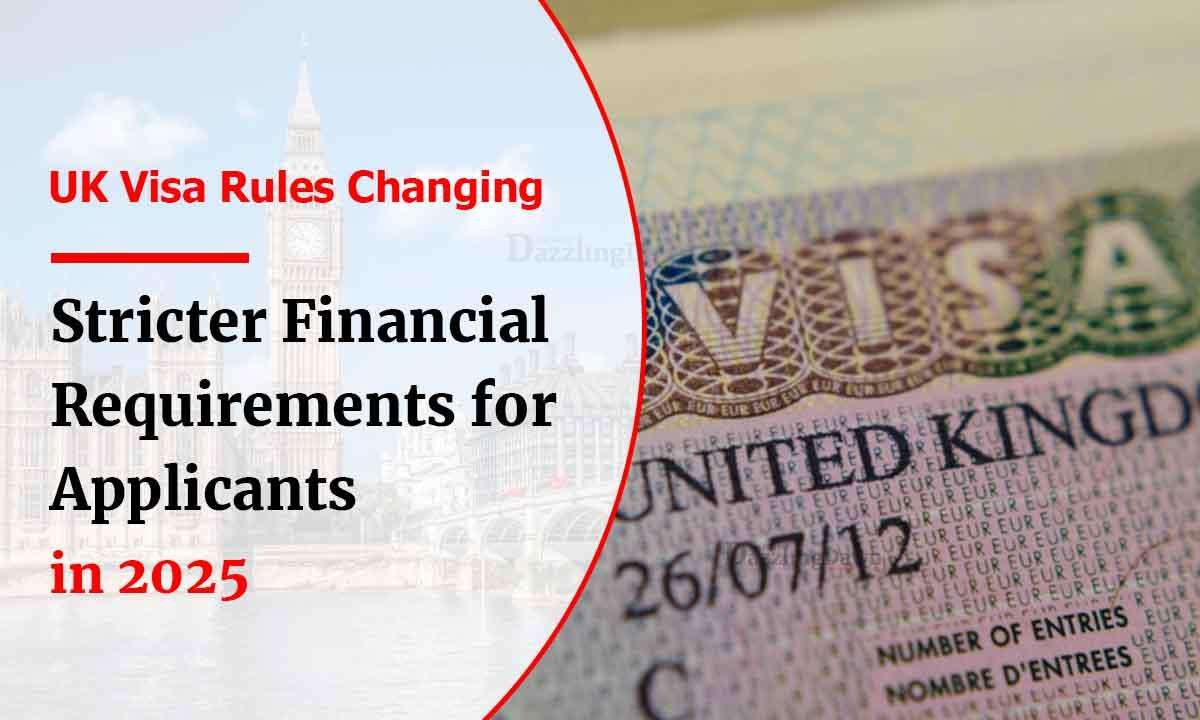The UK is set to implement stricter financial requirements for visa applicants in 2025, impacting international students, skilled workers, family reunification, and tourists. These changes aim to enhance economic stability by ensuring applicants can financially support themselves. However, critics warn that the higher financial thresholds may create significant barriers for mid-level professionals, students, and families seeking to move to the UK.
Key updates include increased financial requirements across multiple visa categories. International students must demonstrate higher maintenance funds, skilled workers will face stricter salary criteria, and family visa sponsors must meet higher income thresholds. Additionally, tourists will need to prove stronger financial stability, and some visa-exempt travelers must apply for an Electronic Travel Authorization (ETA) before entry.
With these tougher regulations, studying, working, or visiting the UK may become more challenging and expensive, prompting many applicants to consider alternative destinations.
Higher Financial Requirements for Visa Applicants
- Students outside London must show at least £12,000 per year (previously £9,207).
- Students in London must show at least £15,000 per year (previously £12,006).
- New minimum salary threshold: £38,700 (previously £26,500).
- Exemptions apply to certain professions, including healthcare and education.
- New sponsorship income requirement: £29,000 (previously £18,600).
- Further increase planned for 2026: £38,700.
- Typical proof of funds required: £1,500 – £2,500 per visit.
- Visa processing may require additional documentation and longer waiting periods.
New Electronic Travel Authorization (ETA) System
In addition to financial rule changes, the UK is rolling out an Electronic Travel Authorization (ETA) system for visa-exempt travelers from select countries. Starting March 5, 2025, eligible visitors can apply for an ETA, and from April 2, 2025, it will become a mandatory requirement for entry. This system is similar to the US ESTA and EU ETIAS programs, introducing a pre-screening process for short-term travelers.
The UK government claims the ETA will strengthen border security, but critics argue it adds unnecessary bureaucracy and could cause travel delays. Travelers who previously entered the UK without restrictions must now apply in advance, potentially facing longer processing times and unexpected disruptions. While this aligns with global border control measures, it may reduce the UK's attractiveness as a travel destination.
Impact of These Changes on Immigration and Travel
The UK’s 2025 visa rule changes will significantly affect international students, skilled workers, families, and tourists. Many students may reconsider studying in the UK, opting for destinations with lower financial requirements. Skilled workers in sectors not exempt from the salary threshold may struggle to secure jobs, potentially leading to labor shortages in key industries. Families will face greater challenges in reuniting, while tourists may experience longer processing times and stricter financial verification.
While the UK government argues these measures are essential for economic stability, critics warn they could make the country less attractive to global talent and visitors. The increased costs and complexity of the immigration process may push migrants and travelers toward nations with more flexible visa policies.








.svg)
